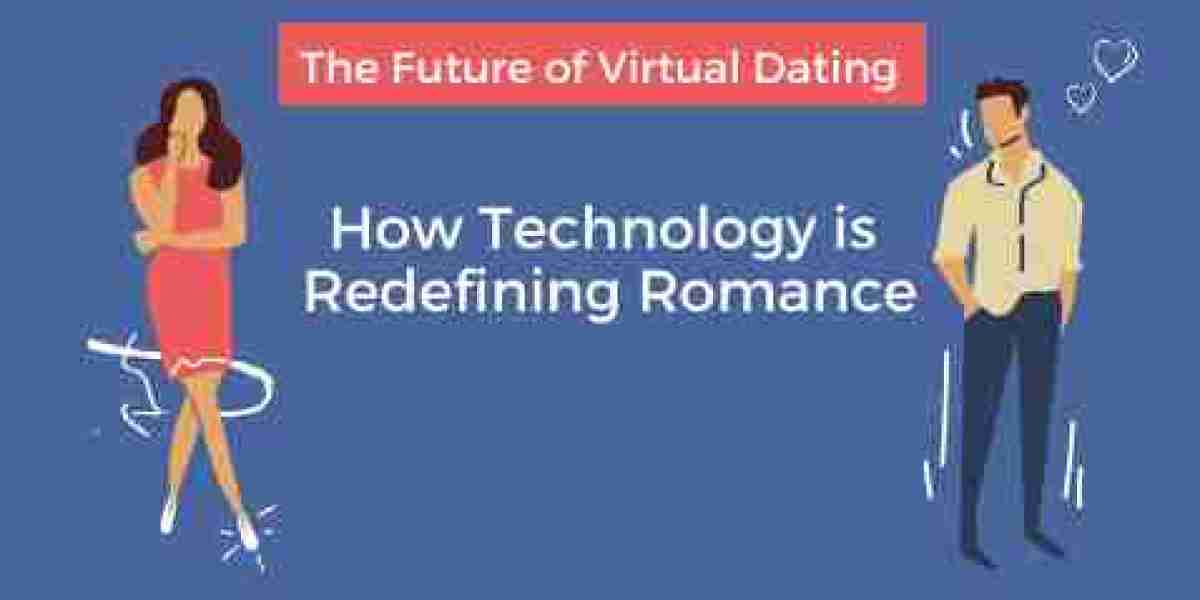Romance has always been shaped by societal changes and technological advancements, evolving from handwritten love letters to digital messages that cross continents in an instant. As technology continues to redefine human interaction, virtual dating is becoming more immersive, personalized, and accessible. The future of dating is shifting beyond mere text exchanges, introducing artificial intelligence, virtual reality, and augmented reality into romantic connections.
The Evolution of Online Dating
Online dating started as a way to bridge geographical distances and expand social circles, helping people meet potential partners they might never have encountered in their daily lives. Early platforms relied on static profiles and direct messaging, but today’s virtual dating landscape has evolved significantly.
Dating apps now use advanced algorithms to assess user preferences, behavioral
patterns, and even psychological traits. Machine learning enables platforms to refine matchmaking accuracy by analyzing interactions, conversation styles, and common interests. As technology progresses, future dating experiences will become even more tailored and interactive.
AI-Powered Matchmaking
Artificial intelligence is revolutionizing virtual dating by improving compatibility assessments and enhancing user experience. AI-driven matchmaking goes beyond basic interests, delving into emotional intelligence, communication styles, and subconscious preferences.
Personalized AI assistants now guide users through conversations, offering suggestions to break the ice or engage in meaningful discussions. These AI tools also analyze previous interactions to refine future matches, increasing the likelihood of successful relationships.
AI-powered relationship coaching is another emerging trend. Virtual coaches can provide advice based on psychological research, helping couples navigate conflicts, improve communication, and build deeper emotional connections.
Virtual Reality and Immersive Dating Experiences
Virtual reality (VR) is taking digital dating to a new level by creating immersive experiences that mimic real-life interactions. Instead of traditional video calls, couples can meet in digital environments where they feel physically present with each other.
Imagine going on a virtual date in a Parisian café, walking through a simulated art gallery, or watching a sunset from a virtual beach—all without leaving your home. VR technology enables people to experience shared adventures, fostering emotional bonds beyond basic chat exchanges.
Future VR dating platforms may incorporate full-body avatars with realistic gestures, facial expressions, and even tactile feedback through haptic technology, making virtual relationships feel remarkably authentic.
Augmented Reality Enhancing Real-World Interactions
Augmented reality (AR) merges digital elements with real-world experiences, enhancing traditional dating scenarios. Through AR, couples can overlay shared memories onto physical spaces, engage in interactive relationship-building exercises, or receive
personalized recommendations based on their interests.
For example, an AR dating app could suggest conversation starters, highlight mutual interests, or even create dynamic quizzes that help partners learn more about each other. The integration of AR in dating could blur the lines between online and offline interactions, making digital connections feel more intimate.
AI Companions and Emotional Support
Beyond human matchmaking, AI companions are emerging as virtual partners offering companionship, emotional support, and engaging conversations. While these digital entities may not replace genuine human intimacy, they provide a safe space for individuals to explore social interactions, practice communication skills, and build confidence.
AI companions can also help users overcome social anxiety, prepare for future relationships, and engage in meaningful dialogue that mimics real-life interactions. While some may find comfort in AI-driven relationships, ethical concerns regarding emotional authenticity and dependency need careful consideration.
Challenges and Ethical Concerns
While technological advancements in virtual dating offer exciting possibilities, they also introduce new challenges:
- Privacy and Data Security – With AI-driven matchmaking and VR dating environments collecting vast amounts of personal data, maintaining privacy and safeguarding user information is crucial.
- Emotional Authenticity – As AI companions and virtual reality interactions become more realistic, questions arise about the emotional depth of digital relationships. Can love thrive in a simulated environment, or does physical presence remain essential?
- Over-Reliance on Technology – While technology enhances romantic connections, it should complement rather than replace genuine human interaction. A balanced approach ensures relationships remain meaningful.
The Future of Romance
The future of virtual dating promises deeper connections, personalized experiences, and immersive interactions that transcend traditional online communication. While some may embrace AI-driven matchmaking and VR environments, others may prefer the authenticity of face-to-face interactions. Regardless of preference, technology will continue to shape the way people form relationships, blending digital advancements with the timeless pursuit of companionship.
Would you embrace virtual dating in the future, or do you believe romance thrives best in real-world encounters? The evolution of love is unfolding before us, and the choice remains yours.









